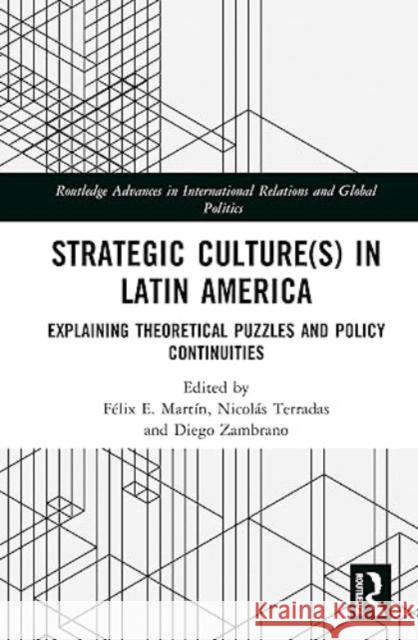Strategic Culture(s) in Latin America » książka
topmenu
Strategic Culture(s) in Latin America
ISBN-13: 9780367692155 / Twarda / 2023 / 288 str.
Strategic Culture(s) in Latin America
ISBN-13: 9780367692155 / Twarda / 2023 / 288 str.
cena 710,17
(netto: 676,35 VAT: 5%)
Najniższa cena z 30 dni: 653,11
(netto: 676,35 VAT: 5%)
Najniższa cena z 30 dni: 653,11
Termin realizacji zamówienia:
ok. 22 dni roboczych.
ok. 22 dni roboczych.
Darmowa dostawa!
Strategic Culture(s) in Latin America elucidates why many state-actors in the Global South exhibit a remarkable degree of policy continuity in their external behavior despite structural incentives for change.











